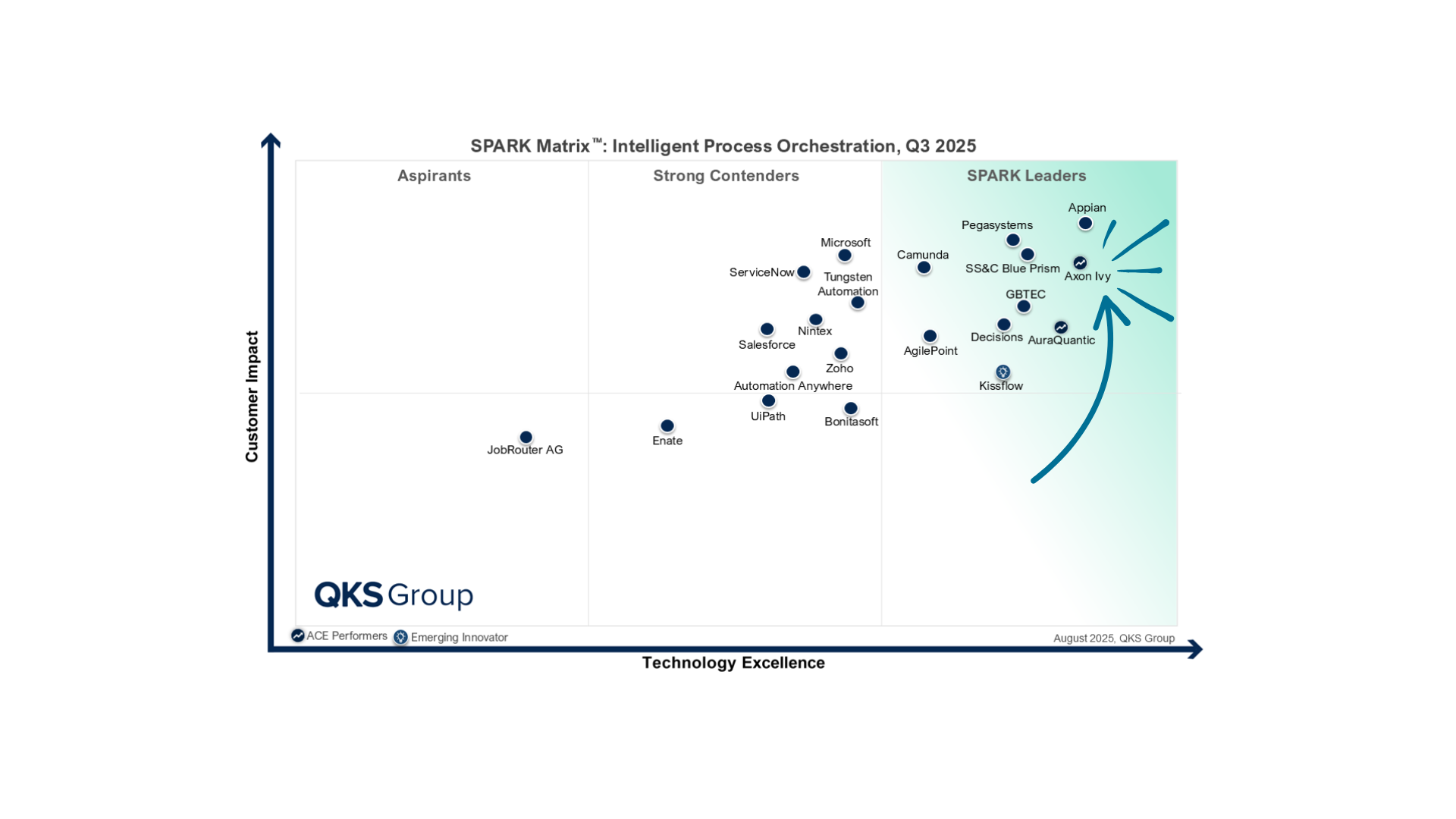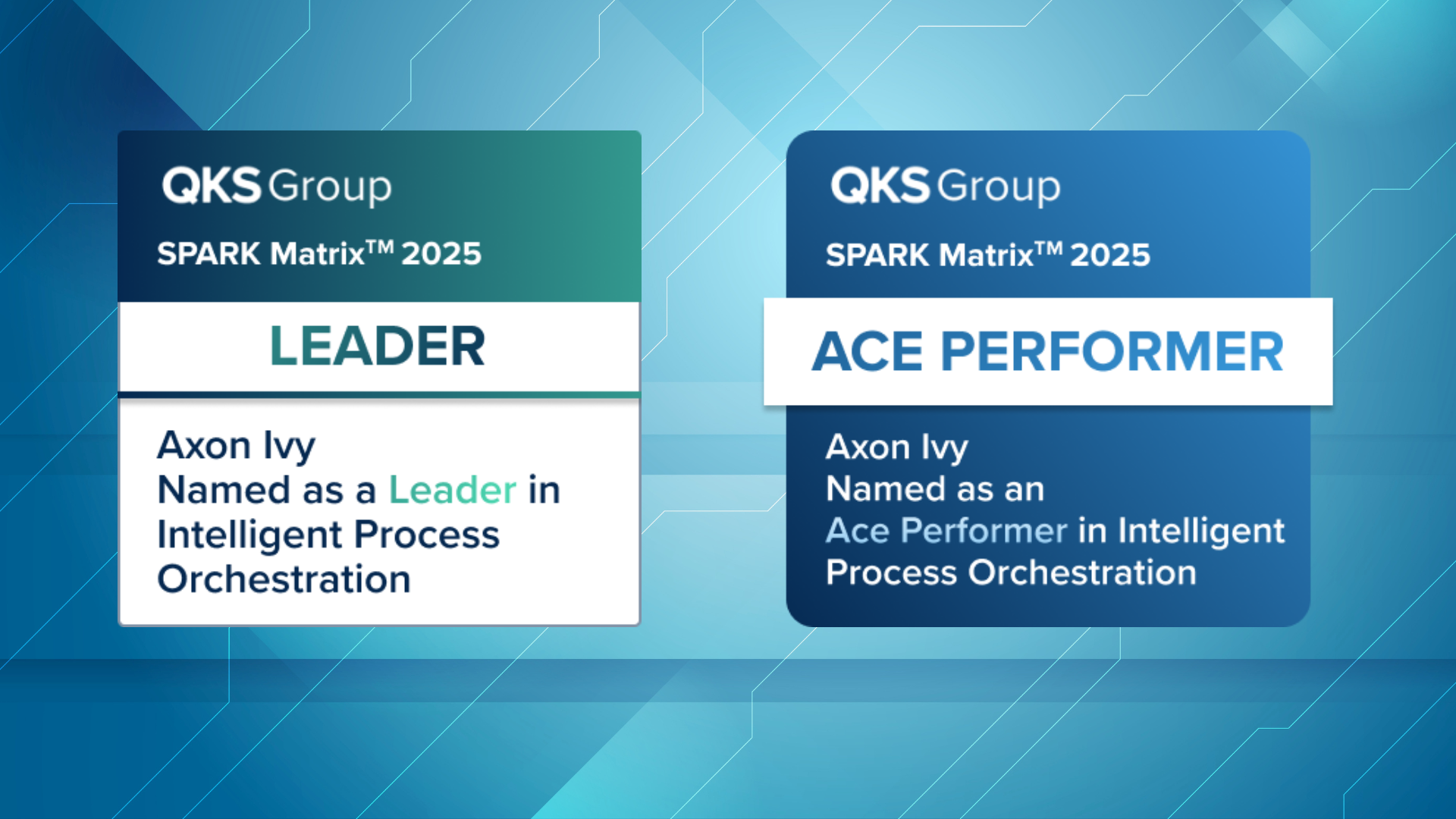
Orchestration of Business Processes
In today's fast-paced business world, companies face increasing complexity in their IT structures and business requirements. To stay competitive, it's essential to automate and sustainably optimize business processes.
However, automation alone is not enough. Efficient coordination and orchestration of processes are crucial for long-term success. But what exactly is meant by "orchestration of business processes"? What are the benefits of orchestration? And what does successful orchestration look like? In this blog post, you'll find answers to these questions and more, offering insights into the orchestration of business processes. To provide context, we'll start with process automation - because without process automation, there can be no orchestration.
Orchestration of Business Processes: FAQs
1. What is process automation?
Process automation refers to the use of technologies and software solutions to automate repetitive tasks, processes, and decisions within a company. The goal is to reduce or eliminate manual, time-consuming activities, thereby increasing efficiency, reducing costs, minimizing errors, and improving work quality. Depending on the specific requirements and procedures of a company, the automation of processes can take various forms. These include:
- Data entry automation: Automatically collecting data from various sources and entering it into systems or databases. This minimizes manual input errors and improves data accuracy.
- Workflow automation: Automatically forwarding tasks and responsibilities to employees or departments based on predefined rules and conditions.
- Decision-Making Automation: Using algorithms and rules to analyze data, identify patterns, and make recommendations, thus automating decision-making processes.
Process automation is implemented through various technologies, including workflow management systems, robotic process automation (RPA), business process management (BPM) platforms, artificial intelligence (AI), and machine learning (ML). By integrating these technologies, companies can optimize their processes, increase productivity, and better control their workflows and resources.
“Process orchestration makes it possible to manage complex automated workflows that are often distributed across different departments and systems.”
Oliver Deutsch
Director Sales & Marketing, Axon Ivy AG
2. What is meant by process orchestration in companies?
Business process orchestration refers to the intelligent and coordinated management of people, systems, and technologies to make company processes more efficient and effective. It builds on business process automation. Process orchestration makes it possible to manage complex automated workflows that are often distributed across different departments and systems. By centrally controlling and optimizing these processes, companies can increase efficiency, reduce costs, and improve overall performance.
3. How does process orchestration differ from automation?
Traditional automation often focuses on using technology or systems to perform repetitive tasks or processes without human intervention. The primary goal is to reduce manual activities, minimize errors, and speed up processes. Automation can range from simple, repetitive tasks to complex processes.
Process orchestration goes one step further. Through the intelligent coordination and integration of automated tasks or processes, it creates a holistic optimization of workflows within a company. It involves managing and synchronizing workflows across departments and systems, providing a company-wide view of processes to better control, monitor, and align them with business objectives.
4. What are the advantages of process orchestration?
Orchestrating processes increases the benefits of automation and takes its advantages to a new level:
- Increased efficiency and cost reduction: Orchestration optimizes workflows, minimizes delays, and accelerates task execution, saving time, resources, and costs.
- Accuracy and consistency: Centralized control of processes reduces human errors and ensures consistent task execution, leading to higher data quality and accuracy in business processes.
- Improved data quality: By intelligently combining and analyzing data from various sources, orchestration provides comprehensive insights, enabling well-informed decisions based on up-to-date information and enhancing business agility.
- Flexibility and adaptability: Orchestration allows companies to adapt their processes quickly and efficiently in response to changes in the business environment or market. New requirements can be seamlessly integrated into the orchestrated workflows.
- Overview and transparency: Centralized process control offers a comprehensive overview of all company processes, increasing transparency, improving monitoring, and supporting management in making informed decisions.
- Enhanced collaboration: By seamlessly integrating processes, orchestration improves communication and collaboration within teams and across different departments, even across system and geographic boundaries.
- Compliance assurance: Process orchestration facilitates adherence to legal regulations and industry-specific standards by ensuring processes are executed according to defined compliance requirements, even beyond system boundaries.
5. Which industries and company sizes benefit from orchestration?
Process orchestration can be implemented across all industries, offering significant advantages to companies regardless of their sector. It is not limited to large enterprises; small and medium-sized businesses can also benefit, especially if they have complex processes requiring coordinated automation. Tailoring process orchestration to the specific needs and size of an organization is key to maximizing its benefits.
6. How does orchestration affect employees?
Process automation positively impacts employees by automating repetitive, time-consuming tasks, allowing them to focus on creative and strategic activities. Orchestration further enhances these effects by creating a connected and efficient working environment through the seamless integration of technologies, processes, and users across the company. This facilitates better communication and collaboration across teams and departments. Employees can access relevant information more easily, processes become more transparent and day-to-day work becomes more effective overall. Ultimately, the agile, cooperative and goal-oriented way of working contributes to a positive corporate culture, boosting employee satisfaction and loyalty.
Conclusion: Get the Most Out Of It!
By orchestrating business processes, companies maximize the benefits of process automation. The intelligent coordination of people, systems, and technologies not only increases efficiency but also creates room for creativity, strategic innovation, and flexible adaptation to the constantly changing business landscape. Orchestration is the key to building a successful organization, ensuring the future success of both the company and its employees.




